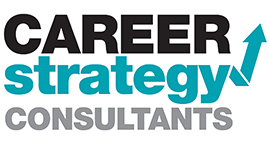How to Scale a Small Business


Many small businesses take up the same products and services, so a business must find novel ways to distinguish itself in order for it to get ahead. This article will explore how a small business can follow these practices in order to increase its sales and market share.
- Set Clear Goals
- Identify Your Industry
- Find Competitive Markets
- Know Your Numbers
- Develop a Plan of Action

Set Clear Goals
Start by figuring out what you want the company to be valued at five years from now, which is when you will take your profits (and retire). That number will influence how much money you need to make, how many employees you need, what is your long-term plan and how much you need to save each year.
Identify Your Industry
Next, decide which industry category (such as construction, consulting, business services, fast food, retail, or financial services) to be a part of. Then, consider the different ways that your company can be unique in that category to differentiate yourself. The more unique it is, the less likely it will be for your company to become a commodity business and have its profits eroded by competitors who are offering similar products and services (because you are essentially competing against yourself).
Find Competitive Markets
In addition, you must understand your market.
- What are its trends?
- What is its size?
- Who makes up the consumer base?
- Why do they buy the particular products and services that they do? How does consumer behavior change over time?
- How does the industry change over time?
The more closely you understand your industry, the easier it will be for you to identify opportunities.
Know Your Numbers
Once you have identified an opportunity in your industry, know how much it costs to produce a product or service. Know how much it costs to make a sale. Know what other costs there are (such as shipping or marketing). Then know what share of that money needs to be reinvested back into making more products or advertising. Finally, know your sales growth rate for the product or service. Based on these numbers, you can determine how many employees you need, what is your long-term plan and how much you need to save each year.
Develop a Plan of Action
Once you know these answers, you can develop a plan of action. You must be realistic in this department as well. For example, if a market size of 1 million people is expected to spend $1 billion a year on a particular product or service, then the company needs to make at least $100 million in net sales. And as a result, it must have at least 100 employees. However, if revenue is expected to be only $500 million and the company needs to make only one-fifth of that amount, then it needs only five employees.

Profit, Market Share, & Growth
The first step to creating a successful business is to examine its three underlying factors which are profit, market share, and growth. Once you have done this you can set practical goals that will enable your business to become profitable and increase its market share by delivering a unique product or service.
Once you decide what type of business you want to start, the next step is deciding what product or service that is going to be part of it. It is important to realize that you should be aiming to sell a product or service that you are an expert in. If you try to sell something that you know little about, there are going to be many issues. You will have no credibility with customers who will not trust your sales pitch. In addition, it will be difficult for you to compete with companies that know what they are doing because they have been in the market for a long time. If on the other hand, if you concentrate on offering products and services that you can offer with your expert knowledge, then both consumers and companies will trust your company.
Once you decide what product or service your company is going to specialize in, make sure that it has some unique aspect about it. Start with a firm understanding of who you are as a business and what your goals are. It is important to have these goals clearly set in your mind before considering scaling them. The risks associated with the exponential growth of small businesses include the inability of some owners to handle the workload, lack of planning for the expansion, and unclear management. The owners and managers of the small business must have a clear understanding of the finances and should have a detailed plan for growth based on realistic goals.
Knowing your customers and establishing relationships with them that go beyond the interaction that happens when they make a purchase is imperative. Making sure the purchasing process is easy from start to finish will help build positive relationships with customers, increasing customer satisfaction and loyalty. It can also lead to brand evangelism among your customers who may begin referring you to their friends, further growing your business.

Hiring and Talent
Prepare to hire good employees. Many employees are not highly motivated enough for the new challenges that a business will face when it scales. You should expect to replace some employees as the company grows because they may be struggling too much to keep up with the changes or may not be able to handle them effectively enough. Be prepared to hire additional employees as you expand so that it does not become more difficult for you to manage. You will have a higher level of management at your disposal, which means that you can make strategic business decisions as opposed to dealing with daily operations issues. By hiring specialists in key positions you can divert your attention to issues like day-to-day planning and long-term strategy.
Find ways to foster collaboration among employees. The main advantage of having a larger team is that it gives you the ability to manage different aspects of your business with different people without having them become overwhelmed or burdened by one task. Being able to assign specialized tasks allows employees to work at their full potential, which in turn helps the business grow.
Business Infrastructure
A business must have a strong infrastructure. Having a strong infrastructure will help you prepare for customer service needs and other issues that are likely to arise in a growing business. While it may not seem necessary at the beginning, it is important to have a strong infrastructure in place before the demands of growth begin.
Make sure that you do your research before choosing a business partner. If your business grows and begins to expand, having competent partners will be vital to maintaining growth and effectively managing the relationships that may develop among partners over time. You should take into account different financial situations and align yourselves with those who are best suited for the company.
Prepare for the possibility of exponential growth in your business. Many small businesses experience a period of exponential growth followed by a period of stability where they increase slowly. Be ready to adapt to this type of development pattern and plan carefully for it before it strikes. Plan future steps carefully, as engaging in exponential growth risks having problems implementing strategies when they become necessary. If your business becomes too large and you are unsure of how to handle different issues, you ought to consider contracting with a business consultancy firm. Having a professional company help you introduce different strategies can make it easier for you to manage your business effectively since the consultants are well-versed in implementing them.
Government grants and loans can sometimes be used for scaling small businesses; however, this does not always work out positively for all businesses. The process for obtaining government funding is laborious and may take several years to secure funding if it is approved at all. The amount of time and money that goes into applying for government funding is typically much more than the potential benefits that may come from securing it.
Seek out a business plan consultant to help you with the process of planning your business. Having a professional business plan consultant in place can help you articulate your ideas and goals into a detailed, written proposal that will appeal to potential investors. You can also be certain that you are prepared for future issues as opposed to being caught off guard by them when they arise.
Management & Organizational Skills
It is crucial in scaling a small business to have good management skills and the ability to handle financial issues effectively. Being able to manage those things properly means that you will have the ability to incorporate new strategies or systems about once or twice every two or three years.
You should make sure to have excellent organizational skills. A small business needs to have a strong foundation, and this requires organization. Be sure that the people you hire are organized and have an eye for details in all aspects of the business such as marketing, accounting, and payroll. Poor organization can easily lead to issues like missed deadlines or missed opportunities, which can affect the performance of your company.

Take advantage of present opportunities rather than worrying about problems that may arise in the future. When a problem does arise, you should be able to handle it effectively as opposed to feeling overwhelmed by it because you are not prepared for it. If you have good preparation and organization, then you can easily deal with issues that you may face.
Consider a venture capital firm as an alternative to obtaining federal funding and other types of funding. Venture capital firms are typically private companies that provide money to start-up businesses as a way to help them grow faster. They typically provide seed money that allows businesses to get off the ground without having major cash shortages, but will also offer coaching services, help with strategic planning, etc. as an incentive for investors to make the investment.
Mental & Physical
To scale a small business, you need to consider two types of preparedness: mental and physical. Mentally, be ready for the possibility that your growth will cause you to hire new employees and expand your business in other ways. Also, you must be able to stay focused on the financial side of things and know how to handle certain issues that may arise. Physically, be ready to make sure that you have good infrastructure like computers, printers, etc. so that problems can easily be identified and fixed as soon as possible.
You should have a startup plan in place long before you begin scaling your small business into a larger enterprise. When you are ready to scale, you need to have a strategy in place. Without a strategy, it will be more difficult for you to know how to implement leadership changes, how much money is being spent and where it is going, etc.
Take these tips and several others under advisement as you work your way toward scaling your small business into a larger enterprise. The tips in this article will help you get started; however, before too long you may need to consider consulting a business plan consultant to help you with the process. As was mentioned earlier in the article, scaling a small business successfully may be easier said than done. However, if you take the tips from this article and consider every one of them carefully before implementing them in your business, then you can be sure that your business will grow into something great.
If you need help with scaling your business, consider contacting Career Strategy Consultants for further assistance.


More Than Just Staffing
For Employers
For Individuals
